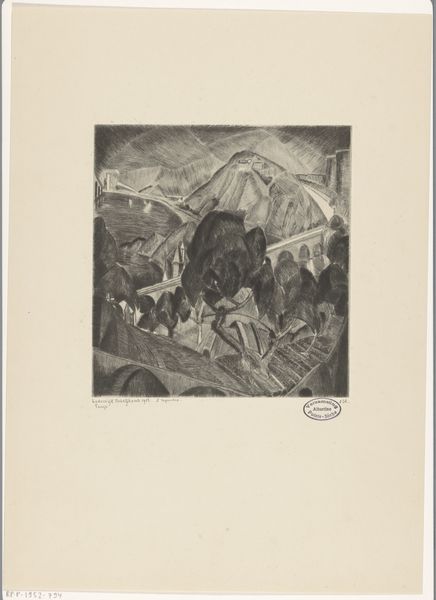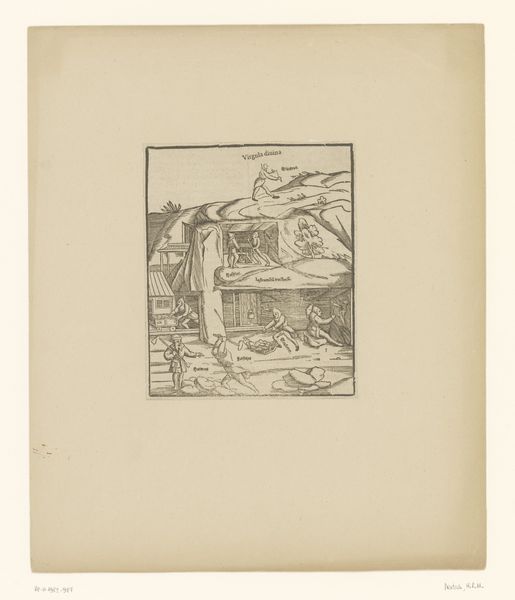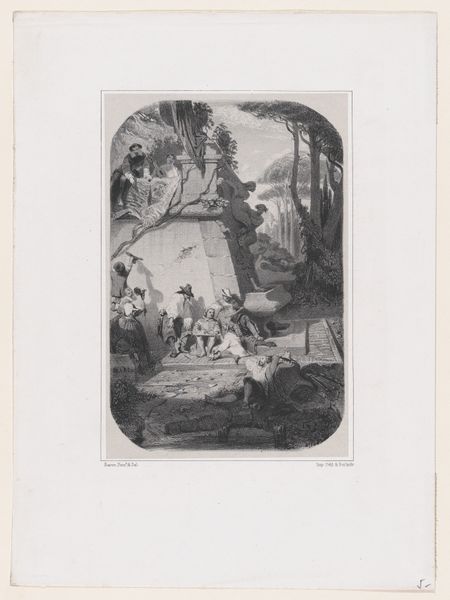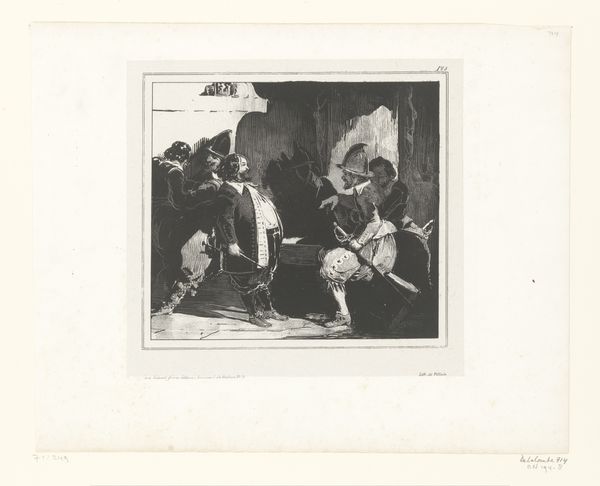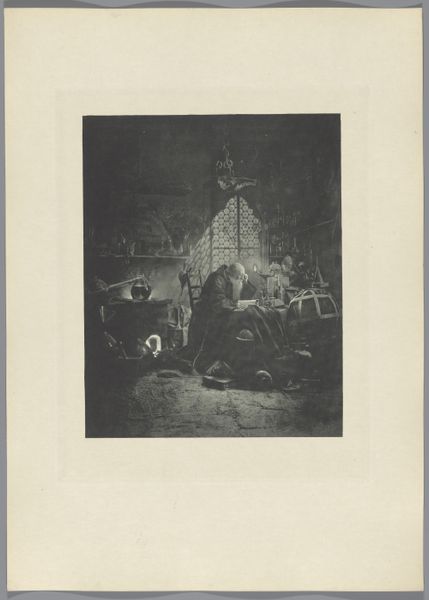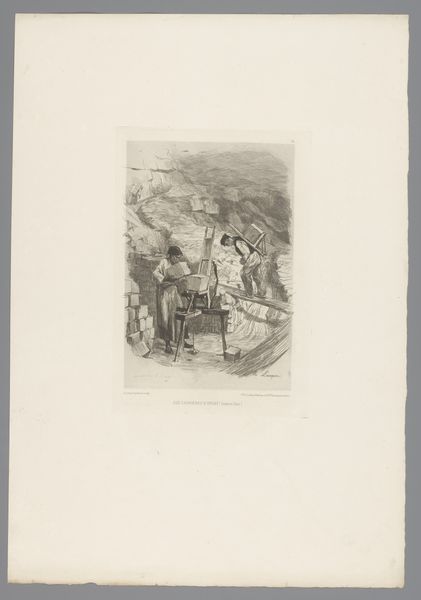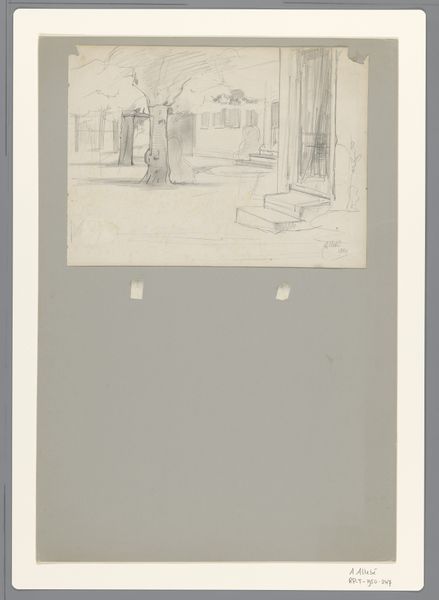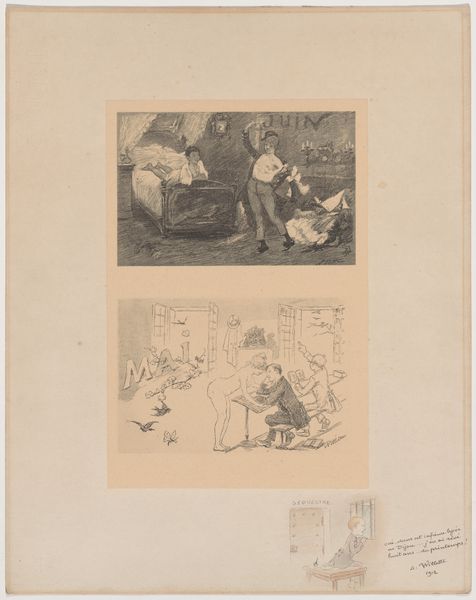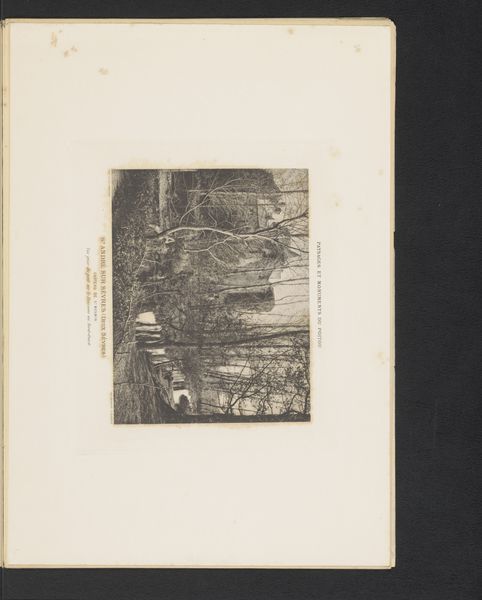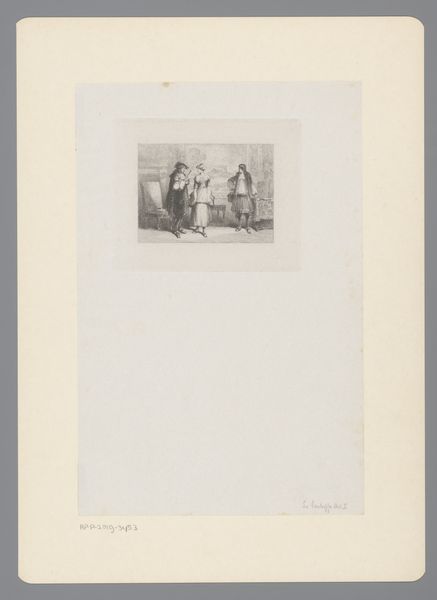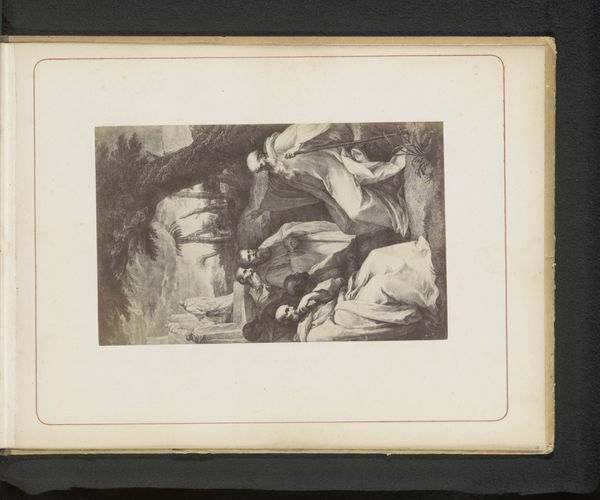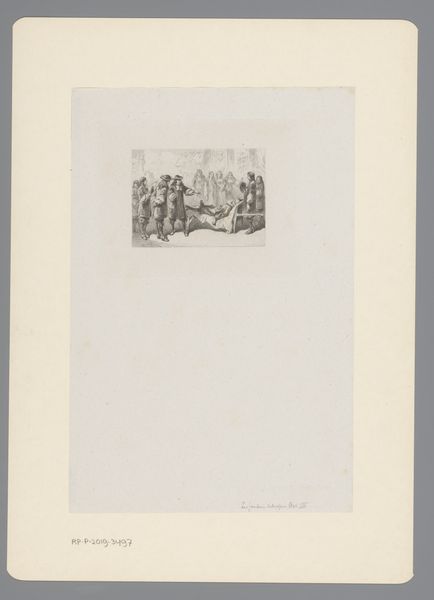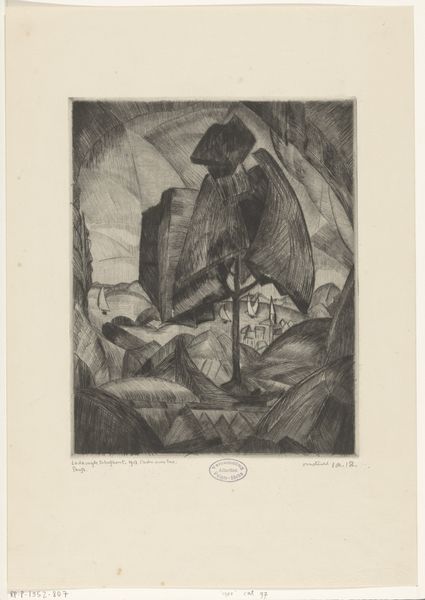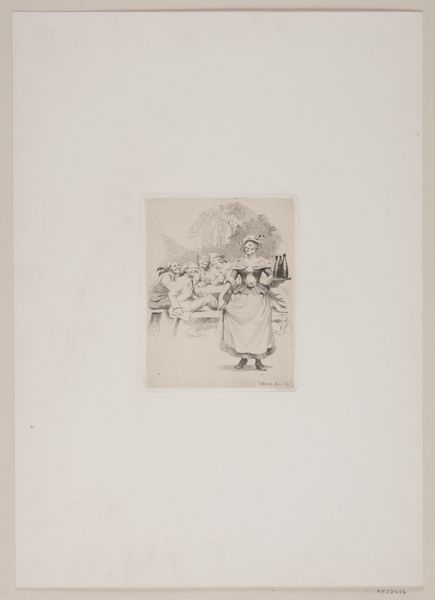
drawing, print, etching
#
drawing
# print
#
etching
#
landscape
#
road
#
expressionism
#
sketchbook drawing
#
watercolour illustration
#
northern-renaissance
Dimensions: height 186 mm, width 186 mm
Copyright: Rijks Museum: Open Domain
Editor: So, here we have Lodewijk Schelfhout's 1912 etching, "Weg in heuvellandschap" - "Road in Hilly Landscape." It’s a pretty striking landscape, almost like a woodcut. All those sharp, angular lines… Where does it fit in historically, in your view? Curator: Given the date, it’s hard to ignore the social context of pre-war Europe, teetering on the brink of monumental change. Those harsh lines and stark contrasts you noticed aren't just aesthetic choices; they echo a sense of anxiety and unease percolating through society at the time. Do you get that sense? Editor: I can definitely see that. It’s almost oppressive. Was Schelfhout consciously engaging with those societal tensions? Curator: Difficult to say definitively about intent, but art is never created in a vacuum. Consider the rise of industrialization and its impact on the Dutch landscape. How might an artist react to such drastic environmental changes? What role could the representation of landscape play in a rapidly modernizing world? Editor: Maybe he’s portraying a distorted landscape to represent societal distortions as well? It's not just a pretty picture, it's… a statement. Curator: Precisely. It becomes a site of commentary, consciously or unconsciously reflecting the socio-political shifts of the time. Think of other early 20th-century artists grappling with similar anxieties through different styles – German Expressionists, for example. Can you see how this work fits within a larger artistic movement of its time? Editor: Yeah, I can see those expressionistic parallels. This has given me a lot to think about! Thank you. Curator: My pleasure. Analyzing art as a reflection of historical and social forces makes it so much richer.
Comments
No comments
Be the first to comment and join the conversation on the ultimate creative platform.
